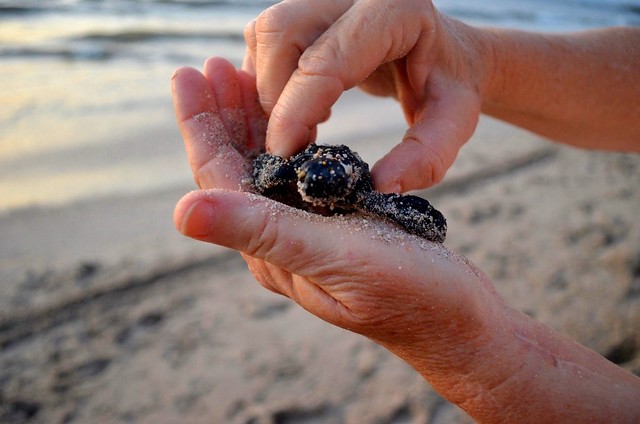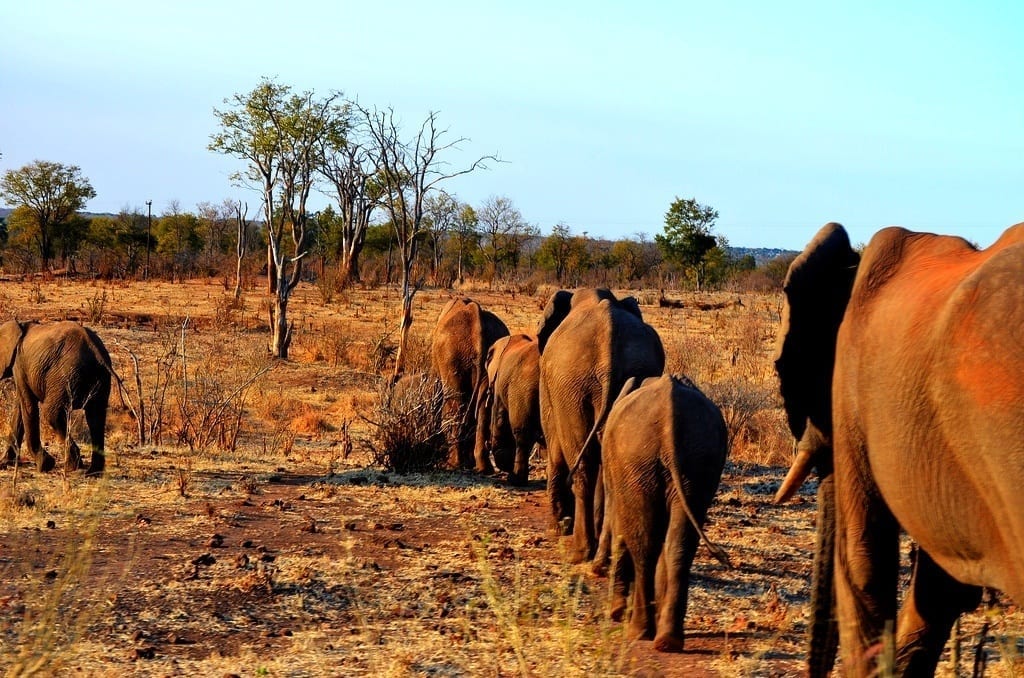
A couple of years ago someone I know was looking for a charity to support as part of a large, Internet fundraising drive. I happily suggested a project involving wildlife conservation and was immediately told that “No, it has to include people, no one cares enough about animals.” I was shocked, not only at the attitude but the lack of education about conservation, particularly wildlife conservation, and how the plight of many animals around the world should concern us not out of an overly developed sense of guilt, but because our lives are inextricably tied to the habitats in which we live.
WAIT, I’m not going to get granola, super crunchy here. I’m not that kind of guy. I’m usually pretty conservative (little c, not big C) in my beliefs and wildlife conservation is very near and dear to my heart and has been for a long time. Why? That’s a good question and honestly it probably started because of my natural (no pun intended) affinity to animals of all shapes and sizes. As I began to travel more, I began to learn more and more about how many of these beautiful creatures are on the brink of extinction, usually because of mankind. But it wasn’t until I learned what the effects of these extinctions could have that I began to get truly worried.

Ties That Bind
Extinction is a natural part of the life cycle on Earth and has been occurring long since man first lit his first fire. However, extinction hurried on by man, through loss of habitat or even hunting is worrisome because it puts at risk the ecosystems which we all call home. It diminishes diversity and complexity of life and throws everything off. We’re all interconnected, and when enough of these connections are broken it puts our own survival at risk. Let’s use an example, sea turtles.
Sea turtles are one of the few animals that feed on sea grass. This grass needs to be constantly cut short by the turtles, and other marine life, in order to remain healthy. Just like cows, the turtles feed on the grass and in the process help it grow and remain viable. Recently there has been a decline in naturally occurring sea grass beds, which can be causally linked to the decline of sea turtles over the same period. So what, you may ask? Well, these sea grass beds provide breeding grounds for fish and other marine life, without which they wouldn’t exist and many foods we humans eat will cease to be or exist in such low numbers that we can’t harvest them. It’s a chain reaction, the lower level fish disappear which means that the middle and higher level fish don’t have anything to eat. So if the turtles go extinct, the cascading effect will be tremendous and absolutely will affect mankind.
This is but one example of thousands proving the importance of keeping connections linked through the conservation of wildlife species. And given the sharp increase in extinctions over the last century, we absolutely need to be concerned.

Shaky Moral Ground
I’ve given you the strongest argument for conservation, to save our own hides. And it’s true, if bees continue their downward spiral our crops won’t be fertilized, heck we even need bacteria to stay alive. These are great motivations to want to stop the advanced level of extinction we’ve seen in recent decades, but usually the motivation to help wildlife isn’t motivated by selfish concerns, it’s part of a marketing effort.
Pandas, elephants, even rhinos are all beneficiaries of our own heightened feelings of guilt, at having destroyed these beautiful creatures and their habitats. But other, less commercially viable causes, like bees and sharks haven’t received as much attention or money. Why? They’re not cute, they can even be dangerous. If we want to really make a commitment to conservation globally though we have to think and act globally. If we acknowledge that the incredible level of extinctions around the world every year is something to be worried about, then we need to be worried about them all, from trees and obscure plants to yes, the mighty African elephant. Let me once again stress that I am not a tree-hugging hippy. Far from it; VERY far from it. But I do feel a need to conserve these species, to do what little bit I can do to help make the world a better place not just for the animals, not just for me, but for future generations so that they may live on the same lush and green planet we now call home.
So what to do?

Travel Conscientiously
The biggest way in which I try to affect change is by traveling conscientiously. I have not always been good at this and I am sure that I will fail again, but it is important to me that I not further harm the planet as I try to see as much of it as possible. First and foremost, it’s important to engage in travel experiences that are beneficial to animals and don’t harm them. A great example is the Asian elephant in Thailand.
Around Thailand there are countless opportunities to ride elephants or interact with them in some way. Almost all of these are experiences to be avoided as the elephants are treated cruelly and without concern for their well-being. Many are tortured and are there just to make a quick buck off of the backs of tourists. Whenever you engage in an animal experience, there must be a conservation component. They must be doing something to further study or help resurrect the species in some way. So in Thailand the alternative activity is to do some volunteer work with the Save The Elephant Foundation in Chiang Mai. Not only do they rescue and rehabilitate abused elephants, but they work with local communities to teach them how to engage in responsible tourism. Tourism that benefits everyone, including the elephants.
By making the right decisions when you travel, you can have an incredible impact not just on the wildlife, but the local communities and the natural areas in which they live.
Will saving the life of a black rhino in Africa help me directly? Probably not. But there is an intrinsic value to their continued existence in the bush of Africa and not in a bottle of fake Chinese medicine. They belong on this planet, they should be allowed to continue their life uninterrupted and to frankly add to the beauty of the world. I can’t prove why it’s important, but I know that it is, I feel that it is and that’s good enough for me.

Well said, Matt. I’m with you 100% and I love the idea of ‘traveling conscientiously’, with wildlife conservation in mind. All too often the negative effects of our interactions with animals are ignored in the rush to do something that appears to be ‘cool’ (for us) but really isn’t (for them).
Really enjoyed your article Matt and agree with you! Sometimes it’s hard to know how to travel conscientiously though and I like your example with the elephants in Thailand. Other simple things that people can do while travelling are visiting conservation projects and national parks – they are some of the most beautiful places to visit and visitor numbers send a message about the number of people who care (plus normally any fees go to conservation work). Also asking questions about animals, plants and the environment wherever you go can help you to learn and helps others understand that people care!
I appreciate that so much!
Regarding travelling conscientiously have you considered the environmental impact of flying? It’s huge. Climate change is one of the factors influencing habitat loss and species extinction.